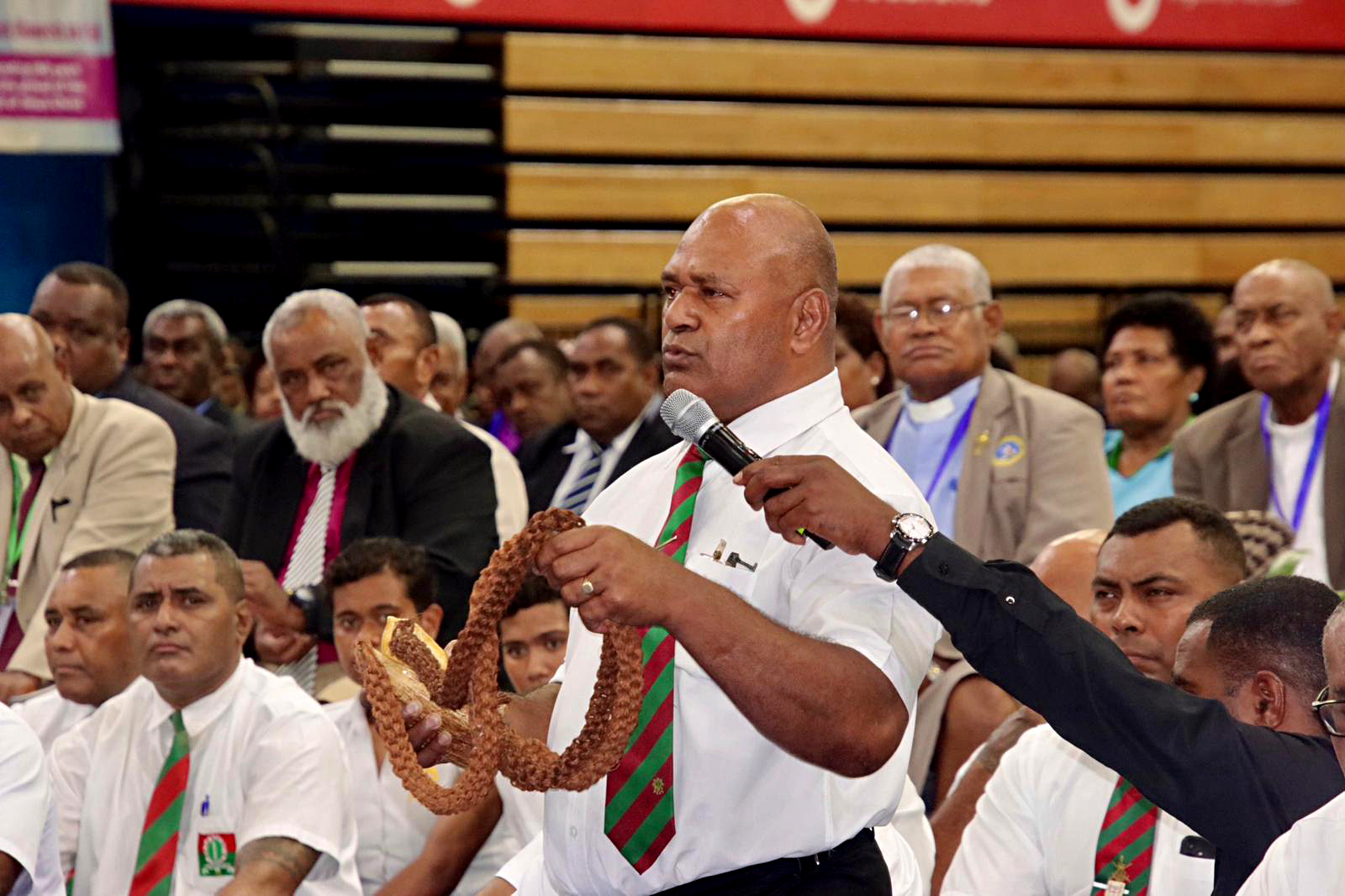THE military yesterday sought forgiveness from the Methodist Church in Fiji and Rotuma for the wrongs it had committed against the church over the years.
Soldiers arrived at the Vodafone Arena in Suva with mats, tapa, bales of cloth, gallons of kerosene and magiti (food) to present their matanigasau (traditional apology).
As part of their reconciliation process, Major Elia Rokowailoa presented a tabua to church president Reverend Dr Semisi Turagavou.
Speaking in the iTaukei language, Maj Rokowailoa pleaded for the church’s forgiveness.
“Some church ministers have passed on, some are still here and we ask you all to please forgive us,” he said.
“We do know that our actions over the past years also affected church ministers and their families. For that we are truly sorry.
“We ask that you accept it.”
In accepting the apology, Dr Turagavou said: “We forgive you and we release you in the name of Jesus Christ.
“His word says, ‘whatever is bound on earth is bound in heaven’, and we, the Methodist Church in Fiji and Rotuma, accept your matanigasau today.
“I accept your reconciliation, the church stands with you today as I offer this tabua towards heaven to signify that forgiveness has been granted by the church and God.
“Go in peace now and know that all is well.”
Reconciliation process to heal past wounds
THE reconciliation process by the Fiji Military Forces with the Methodist Church in Fiji and Rotuma and within its own ranks has broken chains of bondage and freed people from the hurt and scars caused by the military’s involvement in national governance over the past 16 years.
Force Chaplain Reverend Viliame Tunidau made the comment at the Methodist Church conference in Suva after presenting $5000 to the church as part of the military’s financial contribution to the church.
“We started this reconciliation process internally then we moved out to communities like Bau Island and now to the church,” Mr Tunidau said.
“This is part of the Military Commander Major General Ro Jone Kalouniwai’s plan to better our relationship with other stakeholders and communities.”
Mr Tuinidau said his responsibility as chaplain was to work with military leaders and advise them on their spiritual duties, including prayers and fasting periods.
“So, with all that has happened over the past years, this reconciliation is the best way forward.”
Citing the biblical verse 2 Chronicles 7:14, which is a reference to humility, Mr Tunidau said their reconciliation process stood on this principle as its foundation.
“Even internally, the relationships have improved among us and this is a result of this reconciliation process,” he said.
Mr Tunidau, who has been elected head of the church’s youth ministry, said he believed God had chosen him to lead young people.
“There are many youths in the church, but I believe God has given me the capabilities to lead these young people.”

